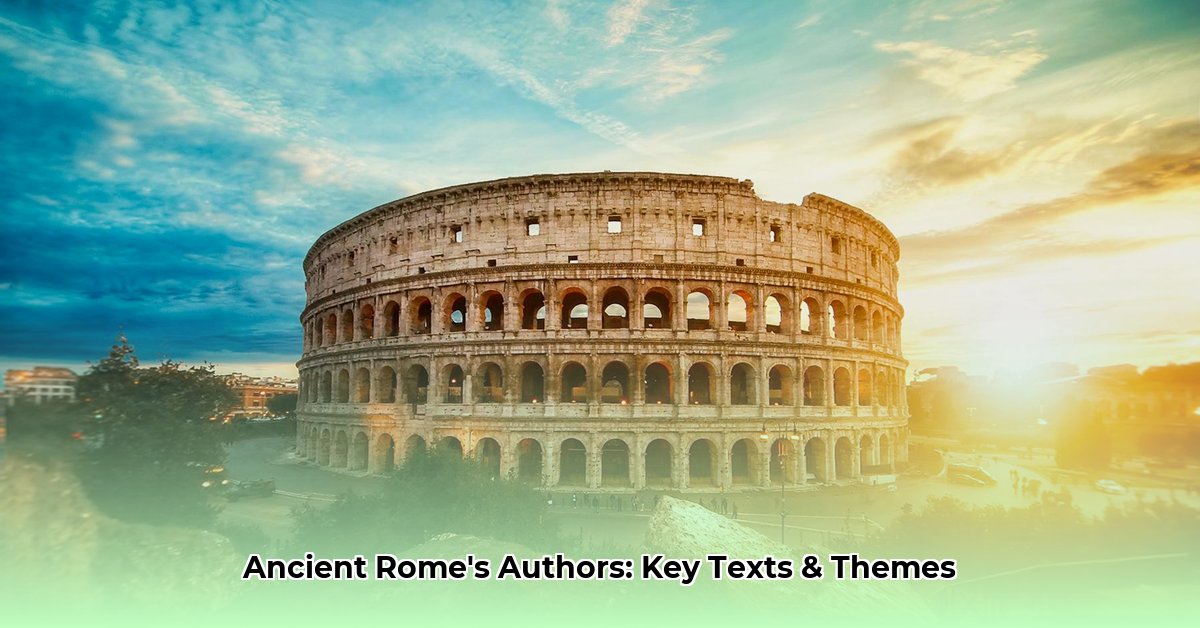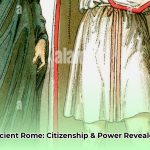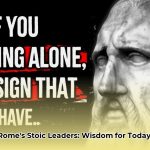The literary landscape of ancient Rome, spanning from roughly 300 B.C. to the late 4th century A.D., stands as a monumental testament to human intellect, artistic expression, and profound influence. Ancient Roman authors, predominantly writing in Latin, crafted enduring works that profoundly shaped Western thought, law, and culture. These texts, encompassing epic poems, comedies, philosophical treatises, historical narratives, and personal letters, offer an unparalleled window into Roman society, politics, and daily life. Despite the ravages of time and the regrettable loss of countless works, the surviving literary legacy continues to be studied, admired, and cherished by scholars and enthusiasts worldwide.
Discover more about the greatest Roman Poets here. This rich literary heritage offers several pivotal insights:
- Evolution of Voice: Roman literature transformed from an initial focus on military triumph and national identity to embrace a diverse array of genres, reflecting the growing sophistication and maturity of Roman civilization.
- Shapers of Identity: Key authors such as Virgil, Cicero, and Livy not only meticulously documented their eras but also actively shaped Roman identity, values, and political discourse, influencing generations.
- Challenges of Preservation: The survival of these invaluable ancient texts faced immense hurdles, leading to an intriguing and often challenging disparity in the preservation rates between Greek and Latin works.
Epochs of Roman Literature: From Republic to Empire
Early Roman literature frequently centered on themes of military history, the Republic’s formidable expansion, and the burgeoning sense of Roman identity. Figures like Cato the Elder (234–149 B.C.), a stern statesman and prolific writer, exemplified this focus with his practical agricultural treatise De Agri Cultura and his famous unwavering calls for the destruction of Carthage. His writings reflect the pragmatic and unyielding spirit of early Rome.
As Rome transitioned from Republic to Empire, its literary interests diversified immensely. Playwrights such as Titus Maccius Plautus (c. 254–184 B.C.), a master of witty dialogue and farcical plots, introduced some of the earliest complete Latin comedies. His plays, influencing later playwrights like Shakespeare, provided humorous yet insightful glimpses into everyday Roman life, often adapting Greek New Comedy for a Roman audience. Quintus Ennius (239–169 B.C.), revered as the “father of Roman poetry,” significantly shaped Latin poetic language and set a high standard for subsequent literary endeavors, particularly with his epic Annales.
The Augustan Age (27 B.C.–14 A.D.) is often hailed as the “Golden Age” of Latin literature, a period of immense literary flourishing under Emperor Augustus’s patronage. This era saw the emergence of some of Rome’s most celebrated poets, philosophers, and historians, whose works would define an entire civilization.
Pillars of Latin Literature: Deep Dives into Key Authors
The enduring influence of ancient Roman authors stems from their profound insights into the human condition, their innovative literary techniques, and their direct impact on the political and cultural fabric of their time.
Virgil: Crafting an Empire’s Soul
Epic poetry reached its zenith with Publius Vergilius Maro (70–19 B.C.), known simply as Virgil. His monumental Aeneid, commissioned by Emperor Augustus, served as Rome’s national epic, a foundational myth that strategically connected the new imperial regime to the heroic narratives of Troy and the divine destiny of Rome. Through Aeneas’s arduous journey, Virgil explored themes of duty, fate, and the sacrifices necessary for the greater good of the state. Despite its clear political purpose, the Aeneid‘s literary genius, profound emotional depth, and intricate verse are undeniable, solidifying Virgil’s status as a preeminent poet in Roman history and inspiring literary works for millennia, including Dante Alighieri’s Divine Comedy. His earlier works, the pastoral Eclogues and the didactic Georgics (a four-book poem on agriculture), showcased his versatile poetic talent and deep connection to the Italian landscape.
Cicero: Rome’s Eloquent Conscience
Marcus Tullius Cicero (106–43 B.C.) remains a colossal figure in Roman intellectual life, celebrated as an exceptional orator, astute politician, brilliant lawyer, and influential philosopher. As a “new man” from a non-noble family, he rose to the consulship. His captivating speeches offer invaluable direct insights into the turbulent political climate of the late Roman Republic, showcasing his mastery of rhetoric and his unwavering commitment to republican ideals. His extensive philosophical writings delve into complex ethical dilemmas, the nature of governance, and the pursuit of knowledge, often translating Greek philosophical concepts into accessible Latin prose. Furthermore, his vast collection of personal letters—including firsthand accounts of pivotal events like the Catiline Conspiracy—are indispensable primary sources for historians, revealing not only political machinations but also intimate details of daily Roman life and personal relationships.
Livy & Sallust: Contrasting Historical Lenses
Historical writing held immense importance for understanding Roman identity and destiny. Titus Livius (64/59 B.C.–17 A.D.), known to most as Livy, embarked on the colossal task of compiling a comprehensive history of Rome from its mythical inception in Ab Urbe Condita (“From the Founding of the City”). His goal was to inspire moral virtue through examples from the past. Although only about a quarter of his original 142 books survive, his work is crucial for understanding Roman self-perception and the moral lessons they drew from their history.
Gaius Sallustius Crispus (86–35 B.C.), known as Sallust, offered a more critical and often cynical analysis of Roman society. His monographs, Bellum Catilinae (on the Catiline Conspiracy) and Bellum Iugurthinum (on the Jugurthine War), explored perceived corruption, moral decay, and the lust for power within Rome’s political elite. Sallust’s incisive psychological portraits and his focus on the decline of republican virtues presented a starkly contrasting perspective to Livy’s more celebratory and didactic tone.
Ovid: Master of Myth and Melancholy
Publius Ovidius Naso (43 B.C.–17/18 A.D.), commonly known as Ovid, is celebrated for his sophisticated and playful poetry. His most renowned work, Metamorphoses, is an epic poem that masterfully weaves together over 250 myths of transformation from Greek and Roman traditions, profoundly enriching the understanding of classical mythology. His other works, such as Ars Amatoria (The Art of Love), playfully explored human relationships, love, and social dynamics in Rome. Ovid’s unique narrative style, characterized by wit, elegance, and vivid imagery, made him a literary sensation in his own time. However, the precise reasons for his mysterious exile from Rome by Emperor Augustus, which he famously attributed to “a poem and a mistake” (carmen et error), continue to intrigue scholars and underscore the complex interplay between artistic expression and imperial power.
Seneca the Younger: Stoicism in the Imperial Court
Lucius Annaeus Seneca (c. 4 B.C.–65 A.D.), known as Seneca the Younger, significantly contributed to both philosophy and drama. As a prominent statesman, tutor, and advisor to Emperor Nero, his Stoic philosophy, articulated in his compelling essays (Moral Epistles, On Providence, On Anger) and tragedies (Medea, Hercules Furens), emphasized virtue, reason, self-control, and an acceptance of life’s unpredictable circumstances. His writings provided practical guidance for living a good life in a complex and often dangerous world. Seneca’s ability to produce such a substantial body of philosophical and dramatic work while deeply involved in the machinations of the imperial court is truly remarkable.
Horace & Catullus: Voices of Private Reflection
Quintus Horatius Flaccus (65–8 B.C.), known as Horace, was a master lyric poet of the Augustan Age. His Odes, Satires, and Epistles offer witty social commentary, philosophical reflections, and deeply personal insights. Horace was known for his versatile and daring word choices, skillfully balancing amusement with serious themes, and advocating for moderation and a simple life.
Gaius Valerius Catullus (c. 84–c. 54 B.C.), a leading figure of the “neoteric” poets, broke from traditional epic poetry to focus on personal themes, particularly passionate love, friendship, and social satire. His Carmina (poems) are intensely emotional and technically innovative, revealing a deeply personal voice rarely seen in earlier Latin literature.
Pliny the Younger: A Window into Roman Life
Gaius Plinius Caecilius Secundus (c. 61–c. 113 A.D.), known as Pliny the Younger, was a Roman magistrate, author, and lawyer. His extensive collection of letters provides an invaluable and intimate glimpse into daily life, administration, and social customs during the early Imperial period. Most famously, his letters to the historian Tacitus include an eyewitness account of the catastrophic eruption of Mount Vesuvius in 79 A.D. that buried Pompeii and Herculaneum, a pivotal historical document. His correspondence with Emperor Trajan also sheds light on Roman provincial governance and the treatment of early Christians.
| Author | Key Works | Primary Genre(s) | Enduring Themes/Contributions |
|---|---|---|---|
| Cato the Elder | De Agri Cultura (On Agriculture) | Prose (Agriculture, History) | Early Roman values, practical wisdom, advocating for traditional Roman virtues and economic self-sufficiency, known for his stern moral stance. |
| Plautus | Menaechmi, Amphitryon, Miles Gloriosus | Comedy | Earliest fully surviving Latin comedies, influential on later European drama, known for slapstick, wordplay, and stock characters, offering humorous insight into Roman social life. |
| Ennius | Annales | Epic Poetry | “Father of Roman Poetry,” adapted Greek poetic meter (dactylic hexameter) to Latin, foundational figure in shaping Latin as a literary language, chronicled Roman history in verse. |
| Virgil | Aeneid, Eclogues, Georgics | Epic, Pastoral, Didactic | Rome’s national epic (Aeneid) linking Rome to divine destiny, celebration of rural life and agriculture, profound influence on Western literature, art, and political thought. |
| Cicero | Orations (e.g., In Catilinam), Philosophical Treatises (e.g., De Officiis), Letters | Oratory, Philosophy, Epistolography | Master of Latin prose, model for rhetoric and argumentation, insights into Republican politics and philosophy, invaluable primary historical source through his vast correspondence. |
| Livy | Ab Urbe Condita (From the Founding of the City) | History | Comprehensive history of Rome from its origins, aimed to inspire moral virtue, a key source for understanding Roman identity and self-perception, though much is lost. |
| Sallust | Bellum Catilinae (Catiline Conspiracy), Bellum Iugurthinum (Jugurthine War) | History | Critical analysis of Roman political corruption and moral decay, psychological insight into historical figures, distinctive concise and archaic style. |
| Ovid | Metamorphoses, Ars Amatoria, Tristia | Epic, Elegy | Masterful recounting of classical myths, witty and erotic exploration of love and human relationships, eloquent expression of sorrow and longing in exile, influential on Renaissance art and literature. |
| Seneca the Younger | Tragedies (e.g., Medea), Philosophical Essays (e.g., Moral Epistles) | Tragedy, Philosophy, Epistolography | Key proponent of Stoicism, emphasizing virtue, reason, and resilience; wrote intense, often violent, tragedies that influenced later playwrights (e.g., Shakespeare); insightful commentary on imperial court life. |
| Catullus | Carmina (Poems) | Lyric Poetry | Passionate exploration of love, friendship, and personal grievances; innovative and direct poetic style; focus on individual experience rather than grand narratives; highly influential on later lyric poets. |
| Horace | Odes, Satires, Epistles, Ars Poetica | Lyric Poetry, Satire | Witty social commentary, philosophical reflection on moderation (carpe diem), elegant and polished verse, significant influence on poetic theory and practice. |
| Pliny the Younger | Letters | Epistolography | Invaluable primary source for Roman daily life, administration, and social customs; famous eyewitness account of the Vesuvius eruption; provides insights into early Christian communities. |
| Vitruvius | De Architectura (On Architecture) | Architecture, Engineering | Only surviving comprehensive treatise on architecture from antiquity, outlining principles of strength, utility, and beauty, foundational text for Renaissance architecture and beyond. |
| Columella | De Re Rustica (On Agriculture) | Didactic Prose | Comprehensive guide to Roman agriculture, covering crops, livestock, and estate management; important source for Roman agricultural practices and economics. |
| Martial | Epigrammata (Epigrams) | Epigrammatic Poetry | Master of the epigram, known for his sharp wit, satirical observations of Roman society, and concise, often crude, poetic style; provides vivid snapshots of everyday Roman life and characters. |
| Juvenal | Saturae (Satires) | Satire | Caustic and moralistic criticism of Roman society’s vices, famous for phrases like “bread and circuses,” influential for later satirists, provides a grim yet vivid picture of imperial Rome. |
The Enduring Riddle of Ovid’s Exile
One of the most persistent and debated mysteries in Roman literature revolves around the banishment of Ovid.
In 8 A.D., at the height of his literary fame, Ovid, then aged 50, faced devastating exile to Tomis, a remote outpost on the Black Sea (modern Constanta, Romania) by decree of Emperor Augustus. Ovid famously attributed this severe punishment to “carmen et error” – “a poem and a mistake.” While the “poem” was almost certainly his Ars Amatoria, a sophisticated and witty guide to love and seduction that directly contradicted Augustus’s moral reform agenda promoting marriage and traditional family values, the nature of the “error” remains a profound historical enigma.
Theories abound concerning the “error.” Was it involvement in a scandal with Augustus’s granddaughter, Julia the Younger, who was also exiled around the same time? Did Ovid inadvertently witness something compromising regarding the imperial family? Or was he perhaps associated with some form of political opposition that Augustus wished to quash? The ambiguity surrounding this “mistake” has fueled centuries of scholarly debate, underscoring the complex and often perilous relationship between artistic expression and imperial power in ancient Rome.
From the harsh solitude of Tomis, Ovid’s writing transformed. Works such as Tristia (Sorrows) and Epistulae ex Ponto (Letters from the Black Sea) reveal a deep longing for Rome, expressing profound despair, loneliness, and repeated pleas for clemency from the emperor. His former playful, sensual style gave way to a more personal, melancholic, and mournful voice, filled with appeals to friends and attempts to justify himself. Ovid spent the remainder of his life in exile, never granted permission to return before his death in 17 or 18 A.D., a poignant end for one of Rome’s most brilliant poets.
Safeguarding Ancient Wisdom: The Preservation of Latin Texts
The survival of ancient Roman literary works, despite historical challenges, remains an ongoing and meticulous effort. Have you ever wondered why more ancient Greek literature seems to survive compared to Latin? The disparity in survival rates is a complex issue rooted in historical, geopolitical, and environmental factors.
Greek literature generally boasts superior preservation due to an earlier literary start, with examples appearing centuries before Latin. More critically, the sustained copying and scholarly activity within the Byzantine Empire, centered in Constantinople, significantly aided Greek text preservation. This centralized institutional backing, where an educated elite actively supported the copying, studying, and transmission










